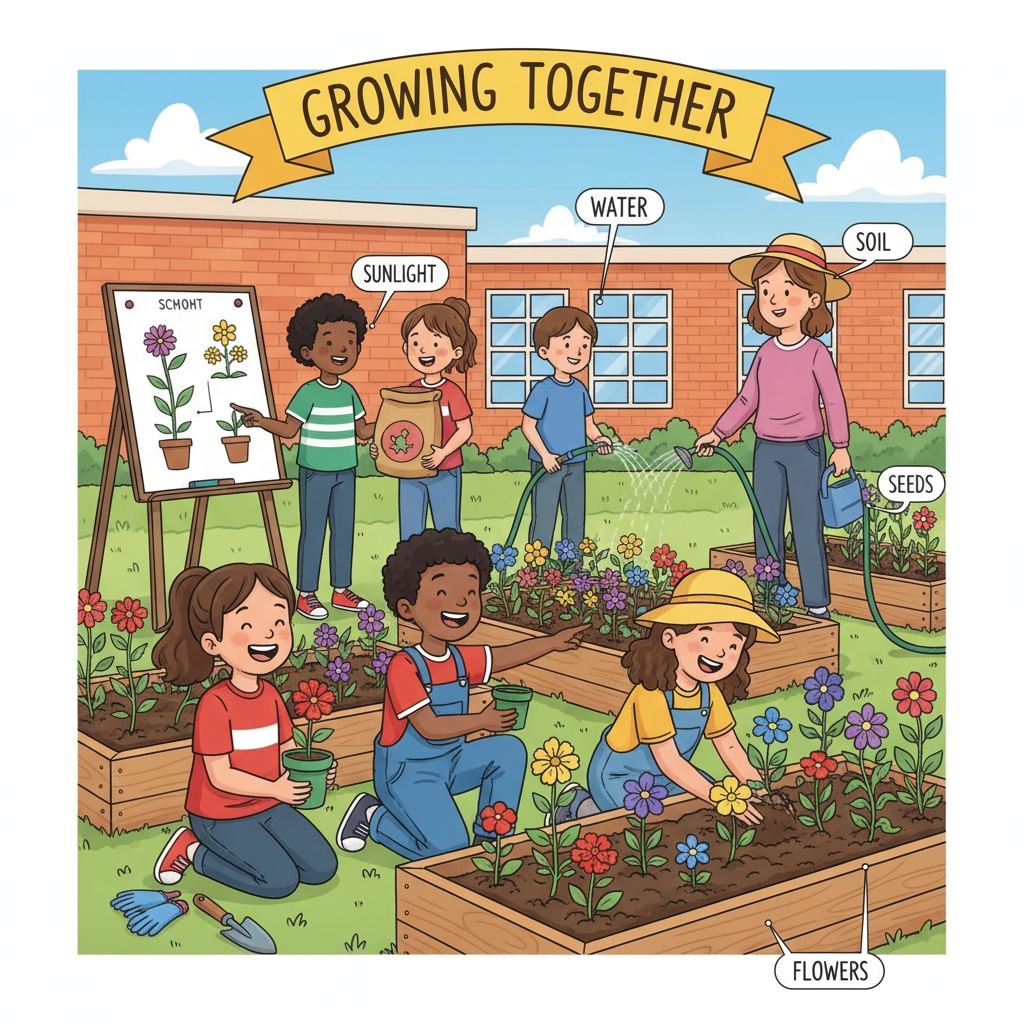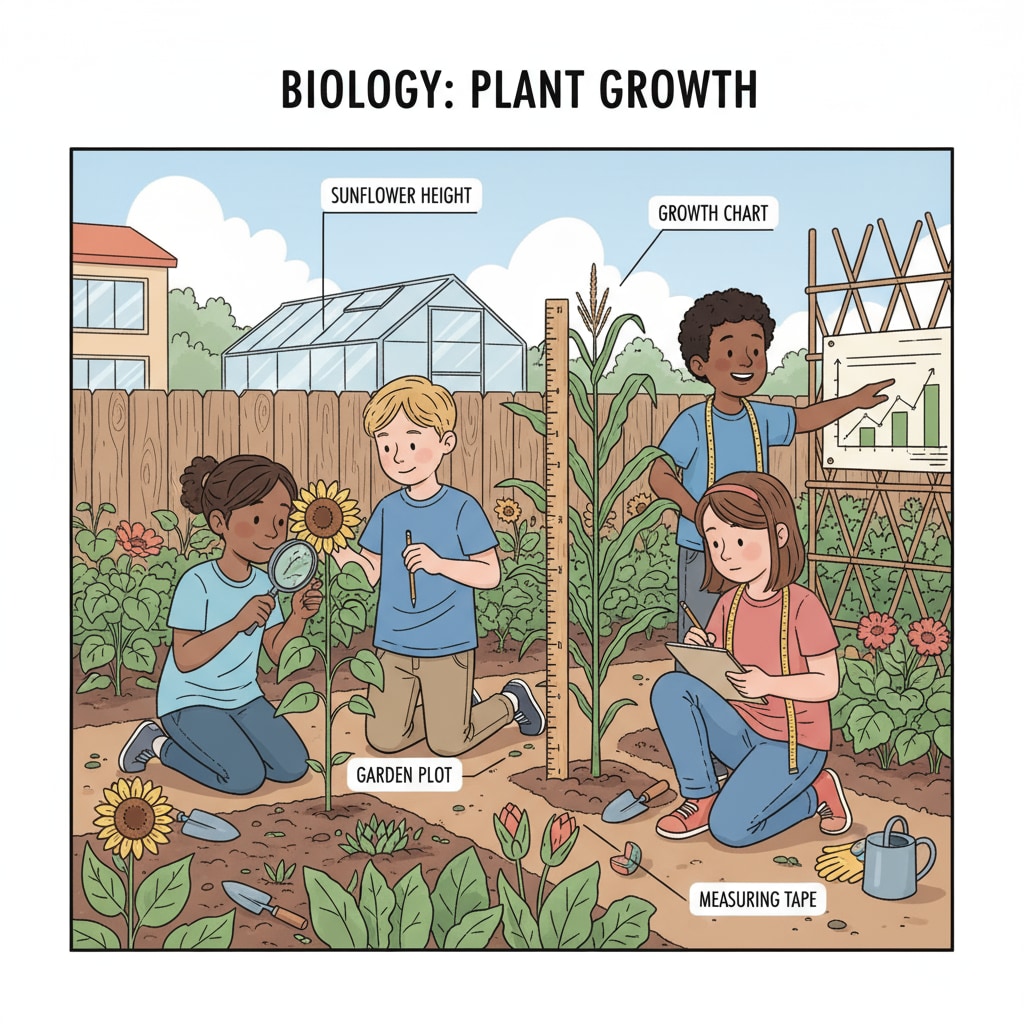School gardens, often overlooked as mere aesthetic additions to campuses, are in fact remarkable educational tools that play a crucial role in student development. These green spaces offer a unique and immersive learning environment that goes beyond the traditional classroom setting.

As students engage with the garden, they not only enhance their academic knowledge but also develop important social, emotional, and physical skills. For example, a study by eSchool News has shown that students involved in school garden projects tend to have better academic performance.
The Academic Value of School Gardens
School gardens provide a hands-on platform for various academic subjects. In science classes, students can observe plant growth cycles, study ecosystems, and learn about the importance of biodiversity. Math concepts such as measurement, area calculation, and data collection can also be taught through garden activities. For instance, students can measure the height of plants over time or calculate the area of the garden beds. According to Education.com, this practical approach helps students better understand and retain complex academic concepts.

Social and Emotional Development in School Gardens
Working together in the garden encourages teamwork, communication, and cooperation among students. They learn to share tasks, respect each other’s opinions, and support one another. Additionally, the garden provides a peaceful and relaxing space where students can de-stress and connect with nature. This connection has a positive impact on their mental well-being and emotional resilience. A report from the National Wildlife Federation emphasizes the role of school gardens in promoting social and emotional development.
In addition to academic and social benefits, school gardens also raise students’ health awareness. By growing their own fruits and vegetables, students learn about healthy eating habits and the importance of fresh, nutritious food. They can also engage in physical activities such as digging, planting, and weeding, which contribute to their overall physical fitness. Moreover, school gardens can be used to teach environmental conservation and sustainability. Students learn about the importance of protecting the environment, reducing waste, and conserving resources.
Readability guidance: The use of short paragraphs and lists helps summarize key points. Each H2 section provides a clear focus. Passive voice and long sentences are kept to a minimum, and transition words are used throughout to enhance the flow of the article.


